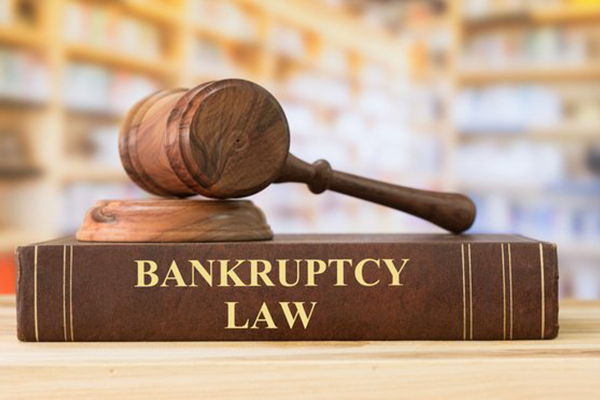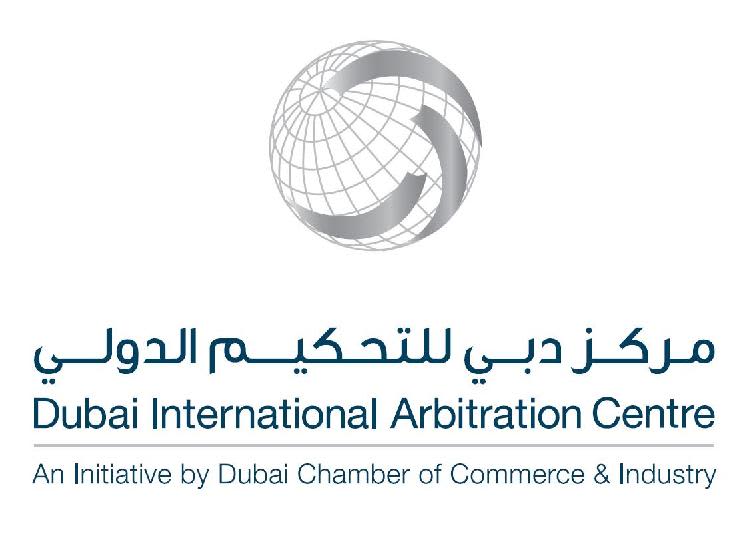The New Changes to the UAE Bankruptcy Law and Marka’s Bankruptcy
INTRODUCTION
By virtue of Federal Decree-Law No. 35/2021 published in the Official Gazette and entered into force on the 1stof November 2021, the UAE Cabinet approved amendments to the Bankruptcy Law No. 9/2016 (the “Bankruptcy Law”). Most significantly, the amendments introduced the right of a board director, or a manager held liable by the courts pursuant to Article 144 of the Bankruptcy law to appeal said court’s decision in accordance with the provisions of the UAE Civil Procedures Code.
Although the amendments targeted only two articles of the Bankruptcy Law, Articles 144 and 201 thereof, said amendments will have a broad impact on determining the directors’ and managers’ liability in the cases where the Company’s debts cannot be paid.
In a recent decision (Commercial Appeal No. 2807/2021 dated 02/02/2022), the Dubai Court of Appeal applied the new provisions of Article 144 allowing the directors and managers of Marka PJSC and its subsidiaries (“Marka”) to appeal the decision issued by the Court of First Instance (Bankruptcy Procedures14/2019 dated 10/10/2021) which held the nine directors of Marka personally liable for all of Marka’s debts totaling AED448million approximately.
BANKRUPTCY PROCEDURES BACKGROUND
Marka and its directors: a love-hate bankruptcy
In 2019, due to a debt deriving from non-paid rents, Al-Dar Properties PJSC filed a bankruptcy application against Marka. The Dubai Court of First Instance accepted the Bankruptcy application in November 2020 and appointed two registered experts as trustees, who estimated Marka’s debts to be slightly worth AED448million.
The Court founded its decision on the trustees’ report and Article 144 of the Bankruptcy Law in its old version to rule that Marka lacked funds to pay 20 percent of its debts and declared that the directors and managers violated the Bankruptcy Law by failing to provide the trustees with financial statements and not justifying the lack of any funds despite the expansion of Marka’s activity and the substantial volume of its transactions. Moreover, the Court considered that the directors and managers mismanaged Marka, and thus, harmed the interests of the shareholders and creditors of the company and its subsidiaries. The Court held Marka’s directors and managers personally liable for all of Marka’s debts amounting to a total of AED448million approximately. The Court decided to also freeze the bank accounts of the nine directors and managers, and to put attachments on their securities and investments, real estate properties, and cars, while also transmitting the case to the Public Prosecutor for further handling of any criminal acts committed by the nine directors.
Marka’s directors and managers were not parties to the case and lacked the opportunity to present a defense and challenge the trustees’ findings. The nine directors and managers appealed the First Instance Court decision pursuant to the new provisions of the Bankruptcy Law.
CHANGES TO THE EXISTING BANKRUPTCY LAW
Amendments with broad impacts
In brief, the amendments provided for in the new Bankruptcy Law consist of the following:
- Dimension of the Personal Liability on Directors and Managers in Case of Bankruptcy
Article 144 in its previous version imposed personal liability on directors and managers who are evidently accountable for the company’s losses under the UAE Commercial Companies Law provisions, and in case the company could not pay at least 20% of its debts and liabilities.
By removing the reference to the Commercial Companies Law, the legislator no longer grants the courts discretion in declaring the directors and managers personally liable for the companies’ losses, but has limited the cases where such liability can be declared to the acts set forth under paragraphs a, b, and c of Article 147-1 of the Bankruptcy Law which state the following:
“1- In case of a bankruptcy declaration, the Court may compel the board members, the managers or the liquidators in liquidation procedures taken beyond the scope of this Decree-Law, to pay an amount to cover the debts if it was proven that any of them committed any of the following acts during the two years following the date of initiating the procedures (Bankruptcy) according to this Section:
a- Adopts commercial methods without considering its risks, such as disposing of the goods at prices lower than their market value, to receive monies to avoid or delay initiating the bankruptcy procedures.
b- Engages in transactions with a third party to dispose of assets at no charge or for an inadequate charge and without certain benefit or not proportionate to the debtor’s assets.
c- Fulfilling any of the creditors’ debts with the intent to cause damage to other creditors during the period of cessation of payment or during insolvency.
2- The Court shall not render its judgment outlined in this Article if the Court is convinced that the physical or legal person had taken all possible preventive measures to reduce the potential losses that may affect the debtor’s assets and his creditors.
3- The Board directors of any entity, the managers or the liquidators shall be exempt from liability for the acts stipulated in this Article if it was proved that they did not participate in such acts or if they proved their reservation on the decision issued in their regard.”
Furthermore, the two newly added provisions of Article 144 give the directors and/or managers against whom an order has been issued according to paragraph (1) of Article 147, the right to appeal such ruling in accordance with the provisions of the UAE Civil Procedures Code. Such appeal shall not result in the stay of execution or affect the res judicata force of the order declaring the company’s bankruptcy.
It should be noted that in any proceeding initiated outside the Bankruptcy Law, the liability outlined in the aforementioned Article 144 does not release the directors and managers from their liability under the Commercial Companies Law. In principle, the company shall be bound by any act or behavior of its directors and managers taken while conducting the affairs of management in a usual manner. The company shall also be bound by any action taken by any of its employees or agents authorized to act on its behalf, and whereby a third party relies thereon in its transaction with the company (Article 23 of the Commercial Companies Law). However, this does not prevent the managers and directors from being held accountable for their mismanagement that causes harm to the company, the shareholders, or third parties. In application of this liability, the Commercial Companies Law regulates in its Articles 164, 165 and 166, the responsibility of the directors and managers for fraud, abuse of authority, and any violation of the provisions of the law, as well as the damages they cause during and on the occasion of their management of the company.
- The Criminal Liability of the Directors and Managers in Case of Bankruptcy
Article 201 of the Bankruptcy Law imposes a criminal liability against a bankrupt company’s directors and managers for various enumerated acts. Two main amendments were introduced to said Article:
- the intentional element in the enumerated acts that must be present to declare a director or manager criminally liable and;
- the imprisonment as a punishment for the directors and managers’ liability can be substituted by a fine.
The amended Article 201 states the following:
“The members of the board of directors, the managers and the liquidators of the Company declared bankrupt by a final order shall be sentenced to imprisonment for a term not exceeding two years and/or a fine not exceeding AED100,000, if they commit any of the following acts:
- Deliberately fail to keep commercial books sufficiently reflecting the Company’s actual financial position or fail to carry out the inventory required by law, with the intent to cause harm to the Company or its creditors.
- Deliberately withhold the information required by the trustee appointed according to the provisions of Chapter Four of this Decree-Law or by the Court, or intentionally submit false information to him.
- To conceal assets from the creditors, dispose of the Company’s assets after the cessation of payments.
- Pay the debt of a creditor after cessation of payments to cause damage to the other creditors, or decide securities or benefits for a creditor that are more favorable than for the other creditors, even if the same was to conclude the protective composition or restructuring.
- Dispose of the Company’s assets for lower than their market value in bad faith or use methods or means that would cause harm to the creditors’ interests with the intention to receive funds to avoid or delay the cessation of payments or a declaration of Bankruptcy or to terminate the protective composition procedure or a restructuring.
- Spend gross amounts on gambling or speculative ventures that are outside the scope of the Company’s business.
- Enter into gross undertakings for an interest other than the interest of the Company, and without consideration, compared to the Company’s financial status as at the time of entering into such undertakings.
The penalty provided for in this Article shall not be applicable to a person whose participation in the acts prohibited hereunder is not established, or whose reservation on the Company decision to perform the actions stated above is established.”
- The New Possibility to Appeal Precautionary Measures
In addition to the amendments to Article 144 and Article 201 of the Bankruptcy Law, Article 2 of the new Bankruptcy Law gives the directors and managers against whom the court rendered a decision imposing a travel ban, or placing their funds under provisional attachment or taking any other restrictive measures, the right to appeal such decision or measure before the Court of Appeal in accordance with the provisions of the UAE Civil Procedures Code. The Court of Appeal may order the stay of execution of the decision if such decision or order results in irreparable damages and the application is based on serious valid reasons.
DECISION OF THE DUBAI COURT OF APPEAL
Marka’s directors: Liable or not liable?
Back to Marka’s case, the Dubai Court of Appeal in its decision No. 2807 dated February 2nd, 2022, ruled that the Court of First Instance, erred in its respective application of the law. Accordingly, the Court of Appeal overturned the decision of the First Instance Court which had held the directors and managers liable.
In details, the Court of Appeal joined and accepted the appeals made by the nine directors/managers, basing its acceptance on the new provisions of Article 144 of the Bankruptcy Law.
In a turnaround judgment, the Court of Appeal stated that “there is no judgment without a trial in place, nor is there an obligation before presenting the defense or being notified of the procedures in which a mandatory judgment may be issued, which is why this court decides to overturn the appealed judgment in what it decided in its fourth, sixth and seventh paragraph, because the trial was not convened, and to return the case to the first instance court”. The Court of Appeal added that in order to preserve the right of the appellants (the nine directors and managers) to have a trial on two degrees, the case should return to the First Instance Court.
Contribution by Farah Wahab, Ali El Maoula and Abdallah Al Naqbi.




